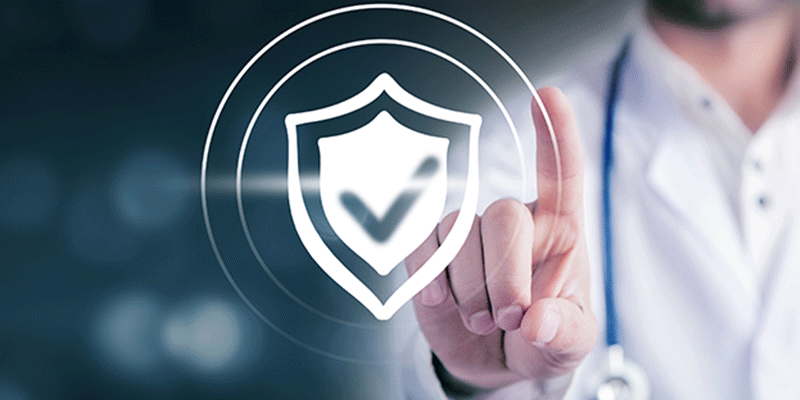Is your data secure? With electronic storage of data, healthcare providers are facing newer challenges in cybersecurity daily. Patient health records are sensitive personal data – it is only natural that we aim for the most secure ways to keep them safe. HIPAA compliance is key, but there’s a lot more to data security. So, what can healthcare providers do to ensure data security?
Data Security In Healthcare
The healthcare industry is bound by HIPAA law to protect all sensitive patient information. According to the HIPAA Act of 1996, healthcare-related entities should arrange appropriate physical and technical measures to ensure the security of digital health information. The Federal Law of the United States requires all health records to be protected. Without efficient data security, patient information becomes susceptible to cyberattacks. The perpetrators may use the data to commit fraud, leading to grave consequences for the individuals involved.
Risk factors
There are certain risk factors to be mindful of while creating a data security system for healthcare.
- Outdated systems – Out-of-date systems are easy targets for attackers since software providers do not support them anymore. Ensure your OS and applications are always updated to the latest versions to guarantee safe functioning.
- Unsecured wireless network – Securing wireless networks with complex passwords is essential to a safer system. Strong passwords are harder to crack and make the network tougher to hack. Having a weak password could prove harmful to your security system.
- Lack of training – Training the employees and everybody associated with the facility on proper security protocols is necessary. Make the employees aware of consequences caused by mishandling of data. Data mishandling refers to the instances where employees unknowingly expose data to risks. Examples include an unattended workstation, unintended data leakages, insecure data transfers, etc.
How Can Healthcare Providers Ensure Data Security?
Here are some essential Do’s and Don’ts for Healthcare providers to ensure data security.
Do’s
Have A Thorough Asset Knowledge – Every information security management program must begin with knowing what and where the most sensitive data is. A thorough understanding of the asset is required to manage the security of the asset and allocate funds correctly for its maintenance. If you find this difficult to achieve, employ a Managed IT provider or cybersecurity auditor to get this done for you.
Create an incident response plan – Once a breach is detected in the system, what matters is how quickly and effectively you launch an incident response. Depending upon the kind of healthcare enterprise you have, you can customize the incident response plan. The priority should be to stop the attack from progressing and conduct a thorough assessment of the attack and its impact. Once the analysis is complete, it’ll be easier to restore systems and re-establish safe communication lines accordingly. Securing patient data is the primary motive here. Conduct mock drills to figure out the loopholes in your incident response plan. Regularly update your security plans to make them foolproof.
Create Awareness Of Phishing and Scams – Every employee must be trained to defend the data against phishing and cyber scam attempts. This awareness has to reach every level of employee, from executives and treasurers to supply chain staff.
Restricted Access – Not everybody needs access to every data. Have a clear protocol in place to ensure that access is granted according to roles. Every access must be protected with a strong password. Enabling multi-factor authentication makes it harder to crack into your administrative systems. This way, even if your password is compromised, it won’t be easy to get inside the network without the next step of authentication.
Don’ts
- Compliance Is Key – HIPAA compliance is mandatory. It is more than just ticking off boxes; the guidelines are to make sure you are doing the minimum to keep your data safe. Do not shy away from going the extra mile to protect confidential records.
- No Follow-Ups – Setting a proper security system in place is a process of constant up-gradation. It is never over. As technology improves every day, so do the different forms of threats. Not following up with the regular risk assessments and latest updates will inevitably make your system obsolete and vulnerable to cyberattacks.
- Not Investing in the Right IT Partner – The data security systems in healthcare enterprises can be large systems consisting of different levels of security. It is impractical to assign all the tasks to a single person. Supervision of the security system is usually the Chief Information Security Officer’s duty. However, with the plethora of security services available for healthcare enterprises, it is wiser to partner with specialist Healthcare IT Support providers. There will always be an experienced pair of eyes monitoring the security of your systems.
How secure is your data? Can you afford a security breach that makes your patients’ information vulnerable? Contact Us or reach out to us at support@tier3md.com, and let’s find out. At Tier3MD, we provide HIPAA-compliant cybersecurity solutions that are holistic, with state-of-the-art technology. We also offer thorough training on HIPAA and cybersecurity protocol for your staff.


